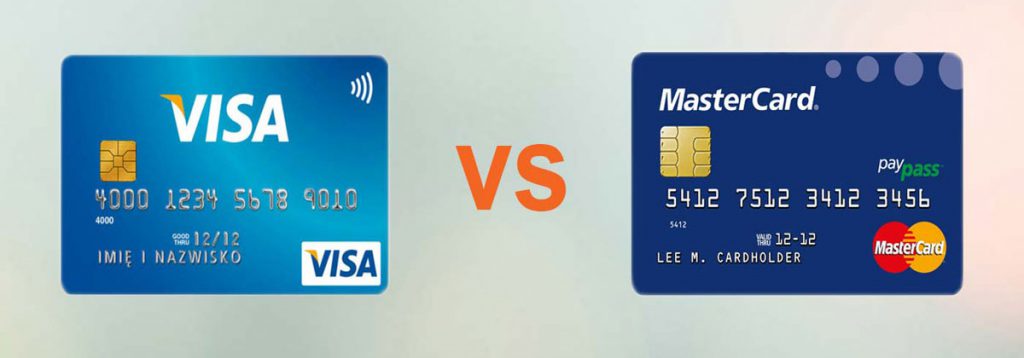The two leading credit card companies in the world today are the competitors Visa and MasterCard.
Both Visa and MasterCard operate in a very similar way. While Visa claims to have 2.4 billion cards issued, across more than 200 countries, MasterCard avoids direct comparison by saying it processes over 18 billion payments per year. It is difficult to find any difference in the number of locations worldwide that accept the cards, which is now estimated at close to thirty million.
What’s the difference between Visa and MasterCard?
As far as most consumers are concerned, there is no real difference between MasterCard and Visa. The two are both widely accepted in over two hundred countries and it is very rare to find a location that will accept one but not the other.
However, neither Visa nor MasterCard actually issue any credit cards themselves. They are both simply methods of payment. They rely on banks in various countries to issue credit cards that utilise these payment methods. Therefore, the interest rates, rewards, annual fees, and all other charges are issued by your bank and when you pay your bill you are paying it to the bank or institution that issued your card and not Visa or MasterCard.

How Visa and MasterCard make their money is by charging the retailer for using their payment method. So the truth of the matter is that a Visa issued by one Bank will have very little to do with a Visa issued by other banks. There are slight differences in what Visa and MasterCard will charge the banks for things like foreign currency conversion fees but, by and large, the two remain competitive on basic offerings.
Which one should you choose?
Back to the question that perplexes most people – which provider is best – MasterCard or Visa? For the vast majority of consumers you do not have to overly concern yourself with whether a credit card is MasterCard vs Visa – in Nigeria, if a retailer accepts one then they accept both.
You would be better off concentrating on the interest rate and other charges on the card, the balance transfer possibilities or their reward scheme. You are very unlikely to ever be affected by the fact that it is one and not the other.
It’s not unusual, though, to see some consumers who have two credit cards in their wallets, one a Visa and the other MasterCard. The thinking behind this is that if they were in the unusual position of finding a location that accepts one but not the other, then they would have the option of paying with either. Some people also like to take advantage of exclusive offers from both card types.
At the end of the day, much more depends on the bank that gave you the card, rather than on the type of card it is.
At Altecho Trading & Exchange – ATEL, we strive to keep you with valuable information.
Follow us on: Facebook, Twitter, and Linkedin


